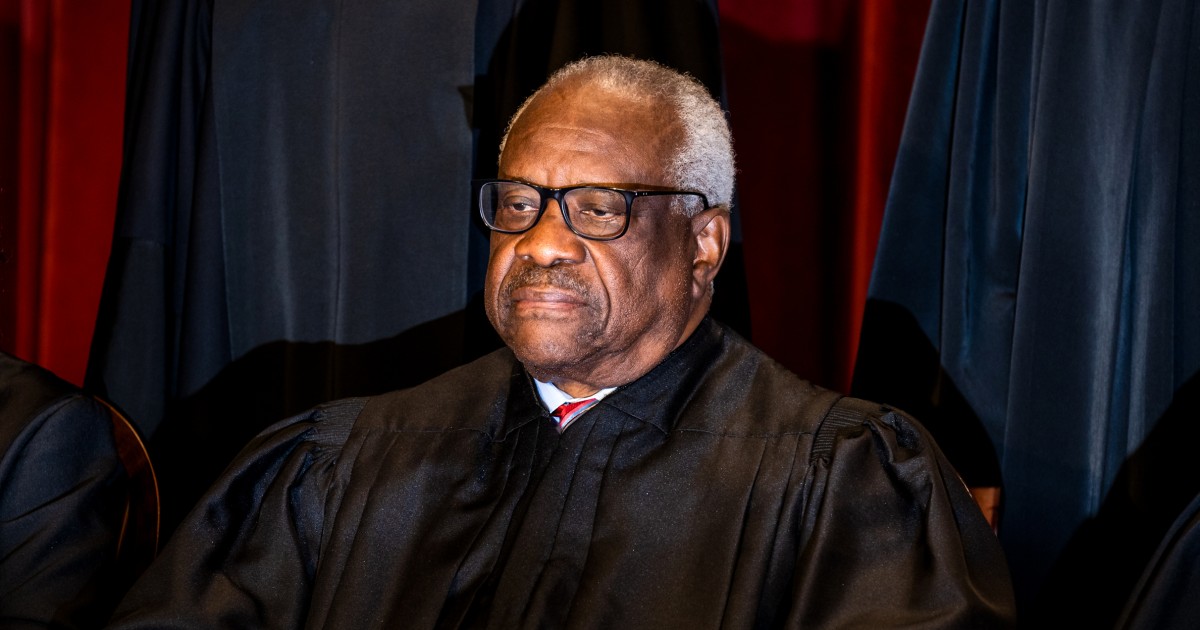WASHINGTON — The Supreme Court on Monday announced it has formally adopted what it called a new code of conduct following allegations of ethics lapses.
The court issued a 14-page document that included five canons of conduct on issues such as when justices should recuse themselves and what kind of outside activities they can engage in.
“The undersigned justices are promulgating this Code of Conduct to set out succinctly and gather in one place the ethics rules and principles that guide the conduct of the Members of the Court,” the justices said in an attached statement. All nine justices signed the statement.
Most of the rules outlined in the code are not themselves new, the statement said, but the lack of a published code “has led in recent years to the misunderstanding that the justices of this court, unlike all other jurists in this country, regard themselves as unrestricted by any ethics rules.”
The code, based on rules followed by lower court judges, appears to build on a statement the justices released in April saying they “reaffirm and restate” their commitment to ethics principles — an announcement that failed to quell the criticism.
Among other things the code requires justices to “uphold the integrity and independence of the judiciary” and “avoid impropriety and the appearance of impropriety in all activities.”
The court has been under pressure to act ever since a series of reports raised questions about whether justices were following the rules.
Democrats on the Senate Judiciary Committee have proposed legislation that would impose a new ethics code on the court, with lawmakers saying they are being forced to act because of the justices’ failure to do so.
The new rules say nothing about how complaints about ethics lapses would be enforced, an omission that Sen. Sheldon Whitehouse, D-R.I., seized upon.
“This is a long-overdue step by the justices, but a code of ethics is not binding unless there is a mechanism to investigate possible violations and enforce the rules,” he said.
What he called the “honor system” of individual justices handling ethics issues has not worked, Whitehouse added.
Although Supreme Court justices follow some of the same rules that are imposed on lower court judges, such as a requirement that they file annual financial disclosure reports, they are not bound by the code of conduct that applies to other judges.
The recent scrutiny was prompted by an April article by ProPublica that said Justice Clarence Thomas had taken trips funded by Republican billionare Harlan Crow without disclosing them. ProPublica then reported in June that Justice Samuel Alito similarly failed to report a trip to Alaska in 2008.
Last week, the Senate Judiciary Committee was scheduled to vote on issuing subpoenas for Crow and conservative legal activist Leonard Leo, but the vote was abruptly postponed.
In recent months, several justices have indicated support for the court adopting its own code. Alito questioned whether Congress would have the legal authority to impose one on a separate branch of government.
Republicans have complained that claims of ethics lapses have disproportionately focused on conservative judges. They have said Democrats want to delegitimize the Supreme Court because it has a 6-3 conservative majority that has issued several rulings that have enraged liberals, including rolling back the abortion rights landmark Roe v. Wade last year.
Where the new code differs from the rules followed by lower court judges is on issues specific to the Supreme Court.
The explanation of the rules notes, for example, that the approach to recusal in certain cases is tailored to the Supreme Court specifically. That’s because the court has only nine justices and cases cannot be reassigned to anyone else if several justices are required to step aside.
As a result, while justices are required to follow the normal rules for deciding whether they need to recuse because of a conflict of interest, they also have what the court calls a “duty to sit” if at all possible.
The statement said that court employees will assist the justices in complying with the new rules, including by drawing up a list of best practices.


